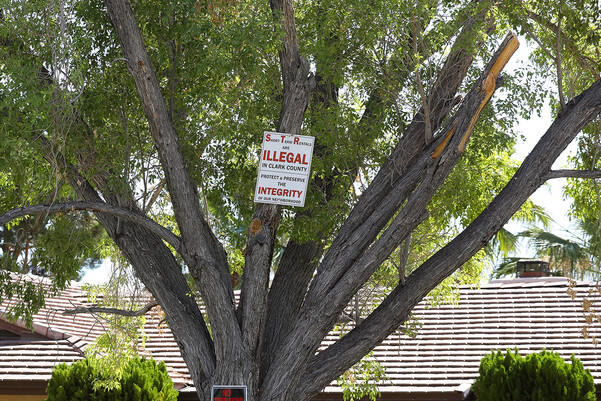Short-term rental group appeals ruling to Supreme Court
The Greater Las Vegas Short-Term Rental Association now wants the state Supreme Court to rule on the constitutionality of short-term rental regulations in Clark County.
The association has been fighting a county ordinance to license, regulate and enforce violations of short-term rentals through a lawsuit filed in August. Last month, a District Court judge issued a preliminary injunction finding that portions of the ordinance are unconstitutional.
Although the preliminary injunction was granted in the rental association’s favor, the group appealed to the state Supreme Court this week because District Judge Jessica Peterson did not address the entirety of its claims, according to Jacqueline Flores, president and director of the short-term rental association.
Flores said the association is particularly concerned with the ordinance’s lottery system to choose license recipients and distance requirements between short-term rentals and hotels.
According to a statement posted to the association’s website, the group failed to resolve the lawsuit with a settlement between them and the county. Flores has previously told the Review-Journal that she aimed to sit down with attorneys from both sides and “fix this whole mess.”
“We have been trying to work with the county commissioners in good faith and they have refused to do that so far,” Flores said Friday.
The sections of the ordinance that Peterson declared unconstitutional include signing the business license application under penalty of perjury, inspections on rental properties with little or no notice, vague definitions of what is considered a “party” or disturbance, and the issuance of “discretionary fines and penalties.”
The county has told license applicants that it will not be enforcing the “under perjury of law” language in the application because of Peterson’s order, according to county spokesman Erik Pappa.
“Regarding other provisions in the Order, Clark County is working through possible solutions, including additional legal action,” Pappa said in an emailed statement.
He declined to comment further on the case.
Peterson wrote in the order granting the preliminary injunction that certain provisions were “unconstitutionally vague and overbroad and fail to provide notice sufficient to enable a person of ordinary intelligence to understand what conduct is prohibited.”
The judge found that vague restrictions banning “parties, weddings, events or other gatherings” exceeding the maximum occupancy of a home was unconstitutional, according to the order. The ordinance also banned the “emission” of noise, light, smoke, odors and hazardous materials that “unreasonably annoys or disturbs” a person of “ordinary sensibilities,” which Peterson also ruled was too vague.
The injunction did not prevent Clark County from issuing licenses through a six-month application process that ended on Monday. A county spokesman told the Review-Journal last month that just over 500 homeowners had applied for a license.
A random number draw for the licenses will happen on March 29, Pappa said.
Flores said that short-term rental operators across Nevada have complained about similar issues with local ordinances and restrictions.
“We need a Nevada Supreme Court ruling. That way we’re able to address all those municipalities at the same time, and ultimately the entire state,” she said Friday.


















